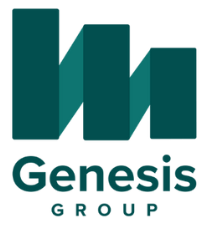Reading Time: 14 minutes
Navigating the Mortgage Landscape as a Self-Employed Entrepreneur:

Embarking on the journey of securing a mortgage as a self-employed entrepreneur can often feel like navigating uncharted waters. Unlike traditional employees, who typically present lenders with a straightforward proof of steady income, self-employed individuals face a unique set of challenges in the mortgage approval process. These challenges, however, are not insurmountable.
Understanding the Unique Challenges
The road to mortgage approval for the self-employed is paved with additional complexities. Lenders typically scrutinize applications from entrepreneurs more rigorously due to the perceived higher risk associated with fluctuating incomes and the entrepreneurial lifestyle. Common challenges include:
- Variable Income: Income can fluctuate significantly when you’re self-employed, making lenders cautious. This variability can make it challenging to prove financial stability and reliability.
- Proof of Income: Traditional employees can easily verify their income with payslips. In contrast, self-employed individuals often need to provide additional documentation, such as tax returns, profit and loss statements, and sometimes even client contracts.
- Higher Scrutiny of Financial Health: Lenders will likely delve deeper into your business’s financial records and your personal credit history to assess the risk of lending to you.
Despite these hurdles, the growing recognition of the entrepreneurial spirit and the increasing number of self-employed individuals have led to more lenders adapting their processes to accommodate non-traditional income streams.
The Power of Preparation and Knowledge
The key to navigating this complex landscape lies in thorough preparation and a solid understanding of the mortgage process. Being well-prepared not only enhances your chances of mortgage approval but also can lead to more favorable loan terms.
Financial Documentation: Having your financial documents organized and ready to present to lenders is crucial. This includes not just your personal financial records but also comprehensive documentation of your business income and expenses.
Understanding Mortgage Requirements: Familiarize yourself with the specific requirements and criteria that lenders have for self-employed individuals. This can include understanding how lenders calculate your income and what constitutes acceptable proof of income.
Professional Advice: Seeking advice from financial advisors or mortgage brokers who specialize in self-employed clients can provide you with valuable insights and help you navigate the complexities of the mortgage process.

As a self-employed entrepreneur, the path to owning your dream home may require extra steps, but with the right approach, it is certainly within reach. Understanding the unique challenges, being well-prepared, and arming yourself with knowledge can greatly enhance your prospects of securing a mortgage.
Understanding Lender’s Perspective on Self-Employed Applicants

When it comes to securing a mortgage, the self-employed entrepreneur often faces a different set of evaluations compared to traditional wage earners. Understanding how lenders view and assess self-employed applicants is crucial in preparing for a successful mortgage application.
Income Verification Challenges for Self-Employed Applicants
One of the primary reasons lenders might view self-employed income differently lies in its nature of variability. Unlike a fixed salary, self-employed income can fluctuate significantly due to various factors like market trends, client base, and general economic conditions.
Variability and Consistency of Income
- Lenders typically prefer a steady, predictable income stream as it indicates a borrower’s ability to consistently meet mortgage payments.
- For self-employed individuals, demonstrating this level of stability can be challenging. Income may vary from month to month or year to year, depending on the success of their business.
Proving Income
- Self-employed applicants often need to go the extra mile to prove their income. This may involve providing several years of tax returns, profit and loss statements, and sometimes additional documentation like bank statements or client contracts.
- Lenders may average out your income over a few years to get a more consistent picture, which can affect the perceived income level.
Risk Assessment for Self-Employed Entrepreneurs
Understanding how lenders assess risk in self-employed applicants is key to addressing their concerns in your mortgage application.
Business Health and Longevity
- Lenders typically look into the health and stability of your business. A business that has been thriving for several years is likely to be seen as less risky compared to a new startup.
- They may examine the nature of your business, the demand for your services or products, and your business’s financial history.
Credit History and Debt-to-Income Ratio
- Your personal credit history remains a crucial factor. Lenders will assess your credit score, payment history, and overall credit management.
- Debt-to-income ratio is another significant consideration. This ratio measures your total monthly debt against your gross monthly income. A lower ratio generally increases your chances of mortgage approval.

Navigating the Lender’s Perspective
By understanding the lender’s perspective, self-employed entrepreneurs can better prepare their mortgage applications to meet these specific requirements. Demonstrating a stable income, showcasing the health of your business, and maintaining a strong credit profile are all crucial steps in aligning with a lender’s risk assessment criteria.
Essential Documentation for Self-Employed Mortgage Applicants

For self-employed entrepreneurs, the mortgage application process demands a comprehensive and well-organized presentation of financial records. Having all the necessary documents in order can significantly enhance your chances of approval. Here’s a rundown of the crucial documentation you’ll need to prepare, along with tips on how to organize these financial records effectively.
List of Necessary Documents for Mortgage Applications
When applying for a mortgage, self-employed individuals need to provide a more extensive array of documents than traditionally employed applicants. These documents help lenders assess your financial stability and the health of your business. Essential documentation typically includes:
Personal and Business Tax Returns: Generally, you’ll need to provide at least two years’ worth of tax returns. This includes both your personal returns and, if applicable, business returns.
Profit and Loss Statements (P&L): Updated profit and loss statements can provide a clear picture of your business’s financial performance.
Bank Statements: These are required to verify your income and assess your cash flow. Both personal and business accounts should be included.
Business License or Articles of Incorporation: These documents prove the legitimacy and existence of your business.
Asset Documentation: Documentation on assets like savings, investment accounts, real estate holdings, and other significant assets.
Debt Documentation: A comprehensive list of personal and business debts, including loans and credit card debts.
Credit Report: Although the lender will pull this report, being familiar with your credit status is beneficial.
Tips on Organizing Financial Records
Proper organization of your financial records not only makes the application process smoother but also demonstrates your reliability and attention to detail to lenders.
Maintain Separate Files for Personal and Business Documents: To avoid confusion, keep your personal and business financial documents in separate files.
Use Digital Organization Tools: Consider using digital tools or software for organizing and storing your financial records. This can include cloud storage solutions or financial management apps.
Regularly Update Financial Records: Ensure that your financial documents, especially P&L statements and bank statements, are up-to-date when you submit your application.
Chronological Order: Organize documents in chronological order for easy reference.
Clear Labeling: Label each document clearly. If you’re providing digital copies, ensure the file names are descriptive and orderly.

Organizing and preparing these documents meticulously can significantly improve the efficiency of your mortgage application process. As a self-employed individual, showing lenders that you are as diligent with your financial organization as you are with your business can make a substantial difference in the way your application is received.
Improving Your Financial Profile

As a self-employed entrepreneur looking to secure a mortgage, one of your top priorities should be to enhance your financial profile. A strong financial profile not only improves your chances of mortgage approval but can also lead to better loan terms. Here, we will discuss practical steps for building a robust credit score and reducing your debt-to-income ratio, both of which are crucial in the eyes of lenders.
Building a Strong Credit Score
Your credit score is a vital component of your financial profile. It’s a metric lenders use to gauge your creditworthiness and repayment ability. Here are some strategies to maintain or improve your credit score:
On-Time Payments: Ensure that all your bills, including credit cards, loans, and utilities, are paid on time. Late payments can negatively impact your credit score.
Credit Utilization Ratio: Try to maintain a low credit utilization ratio, which is the amount of credit you’re using compared to your total credit limit. Keeping this ratio below 30% is generally advised.
Regular Credit Report Checks: Regularly review your credit report for errors or inaccuracies. If you find any, dispute them with the credit bureau.
Avoid Excessive Credit Inquiries: Each time you apply for credit, it can result in a hard inquiry, which can slightly lower your credit score. Limit the number of new credit applications.
Long-Term Credit Accounts: Keep your oldest credit accounts open as they help build a long credit history, which positively impacts your score.
Reducing Debt-to-Income Ratio
Another critical factor lenders consider is your debt-to-income (DTI) ratio. A lower DTI ratio demonstrates to lenders that you are not overly burdened by debt and can manage additional loan payments.
Paying Down Existing Debts: Focus on paying down existing debts, especially high-interest debts like credit card balances. This reduces your monthly debt obligations and improves your DTI ratio.
Increasing Income Streams: If possible, explore ways to increase your income. More income can lower your DTI ratio and make you more appealing to lenders.
Consolidating Debts: Consider consolidating multiple debts into a single loan with a lower interest rate. This can simplify debt management and potentially reduce your monthly debt payments.
Avoiding New Debt: Try to avoid taking on new significant debts, such as car loans or additional credit cards, in the months leading up to your mortgage application.

Improving your financial profile is an ongoing process that requires diligence and strategic planning. By taking proactive steps to enhance your credit score and reduce your DTI ratio, you position yourself as a more attractive candidate to lenders, increasing your chances of securing a favorable mortgage as a self-employed entrepreneur.
Strategies for Proving Stable Income

For self-employed entrepreneurs, one of the key challenges in securing a mortgage is proving a stable income. Lenders need assurance that you have a reliable cash flow to manage mortgage payments. This section will delve into effective strategies for presenting consistent income and showcasing the health and growth potential of your business.
Presenting Consistent Income Through Financial Documents
Demonstrating income stability requires more than just showing your earnings. It involves presenting a complete, coherent financial picture to lenders.
Detailed Profit and Loss Statements: Regularly updated profit and loss statements can provide a clear view of your earnings and expenses over time. Ensure these documents are thorough and professionally prepared.
Tax Returns: Provide several years of tax returns to demonstrate income consistency. More years of stable or increasing income can significantly bolster your application.
Bank Statements: Bank statements can corroborate your income claims. Regular, consistent deposits into your accounts can serve as proof of steady cash flow.
Invoices and Contracts: Presenting invoices and contracts to clients, especially long-term or recurring ones, can help lenders understand your business model and income predictability.
Demonstrating Business Health and Growth Potential
Your business’s financial health plays a crucial role in affirming your ability to sustain mortgage payments.
Business Longevity: A business that has been operational and profitable for several years can be seen as more stable and less risky in the eyes of lenders.
Client Base and Market Position: Showcasing a diverse and robust client base, along with your business’s position in the market, can demonstrate stability and the potential for future growth.
Financial Forecasts: Future financial projections, backed by market analysis or past performance, can help paint a picture of long-term stability and profitability.
Business Credit Score: If applicable, a strong business credit score can further validate the financial health of your enterprise.
Certifications or Industry Recognition: Any industry awards, certifications, or recognition can bolster your case, showing that your business is well-regarded and stable.

Crafting a Compelling Financial Narrative
The goal is to craft a financial narrative that convinces lenders of your stability and reliability as an income earner. This involves not just presenting raw data but weaving it into a story that shows the strength and potential of your business. With a well-documented and presented financial background, self-employed entrepreneurs can make a strong case for mortgage approval.
Special Mortgage Programs for Entrepreneurs

Entrepreneurs and self-employed individuals often have distinct needs when it comes to securing a mortgage. Recognizing this, various government and private lending institutions have developed specialized mortgage programs aimed at making homeownership more accessible for this group. Let’s explore some of these programs and the unique benefits they offer.
Overview of Government and Private Lending Options
Navigating through the myriad of mortgage options can be daunting for self-employed individuals. Here’s an overview of the types of programs typically available:
Government-Backed Mortgage Programs
- These programs are often designed to reduce the barriers to homeownership for self-employed individuals.
- They might offer more lenient eligibility criteria or special terms that are more suited to the income patterns of entrepreneurs.
Private Lending Options
- Private lenders may provide more flexible mortgage solutions that are tailored to the unique financial scenarios of self-employed borrowers.
- These options could include adjustable rates or interest-only payments that align better with fluctuating income streams.
Benefits of Each Program
Each mortgage program comes with its own set of advantages, and understanding these can help you choose the one that best fits your needs.
Government Programs
- Lower Down Payments: Some government programs allow for lower down payments, making it easier to purchase a home without a substantial upfront investment.
- Flexible Credit Requirements: These programs may have more flexible credit requirements, beneficial for those with variable credit histories.
- Loan Guarantee: Government-backed loans often come with a guarantee, which can make them more appealing to lenders.
Private Lending Options
- Customized Loan Structures: Private lenders often offer the flexibility to structure a loan that fits your specific financial situation.
- Higher Loan Amounts: Depending on the lender, you might be able to secure a larger loan than what’s typically available through traditional mortgage programs.
- Alternative Income Verification: Private lenders may accept alternative forms of income verification, which can be advantageous if your income doesn’t fit the standard model.

Choosing the Right Program
As an entrepreneur, selecting the right mortgage program involves considering factors such as your business’s cash flow, your credit situation, and your long-term financial goals. Carefully compare the options available to you, considering how the benefits of each program align with your specific circumstances.
Working with Mortgage Professionals

For self-employed entrepreneurs embarking on the journey of securing a mortgage, working with a mortgage professional, such as a broker, can be immensely beneficial. Understanding the role of mortgage brokers and knowing how to choose the right one can make a significant difference in navigating the complex mortgage landscape.
The Role of Mortgage Brokers in Assisting Self-Employed Applicants
Mortgage brokers act as intermediaries between borrowers and lenders. Their role can be particularly advantageous for self-employed individuals due to the unique challenges they face in securing mortgage approval.
Expertise and Access to a Wide Range of Products
- Brokers have extensive knowledge of the mortgage market and access to a variety of lending products. This can be invaluable for entrepreneurs who may not fit into the traditional borrower category.
- They can identify lenders who are more amenable to self-employed incomes and those that offer mortgage products tailored to the specific needs of entrepreneurs.
Simplifying the Application Process
- Mortgage brokers can guide you through the intricacies of the mortgage application process, helping to streamline and demystify complex procedures.
- They can assist in preparing and presenting your financial information in a way that enhances your application, improving the chances of approval.
Negotiating Terms on Your Behalf
- Experienced brokers can negotiate with lenders to secure terms that best suit your financial situation, potentially saving you significant amounts of money over the life of the mortgage.
Finding the Right Broker for Entrepreneurs
Choosing a mortgage broker who understands the unique needs and challenges of self-employed entrepreneurs is crucial.
Look for Experience with Self-Employed Clients
- Seek out brokers who have a track record of successfully working with self-employed individuals. They are more likely to understand the nuances of your financial situation.
Check for Credentials and Reviews
- Verify the broker’s credentials and look for reviews or testimonials, especially from other entrepreneurs or self-employed clients.
- A reputable broker should be transparent about their qualifications and experience.
Assess Their Communication and Approach
- A good broker should be an excellent communicator, taking the time to understand your specific needs and explaining options clearly.
- They should be approachable and willing to answer your questions thoroughly.
Gauge Their Network and Resources
- Consider the range and diversity of lenders in the broker’s network. A wider network can mean more mortgage options suited to your unique circumstances.

Conclusion
Working with the right mortgage professional can significantly streamline your path to securing a mortgage. By choosing a broker who is well-versed in the needs of self-employed entrepreneurs, you can navigate the mortgage process more efficiently, ensuring you find a loan that aligns perfectly with your entrepreneurial journey and financial goals.
Taking the Leap Towards Homeownership
As we conclude our guide on navigating the mortgage process for self-employed entrepreneurs, let’s take a moment to recap the essential insights. This journey, while distinctive and sometimes challenging, is ultimately a rewarding path towards achieving your dream of homeownership.
Summarize Key Takeaways
Understanding Special Mortgage Programs: Remember that there are specific programs designed for self-employed individuals, offering flexible terms and acknowledging the unique nature of your income.
Importance of Document Organization: Keeping your financial documents well-organized and readily available is crucial for a smooth mortgage application process.
Building a Strong Financial Profile: Focus on strengthening your credit score and reducing your debt-to-income ratio to enhance your mortgage eligibility.
Proving Stable Income: Demonstrate the stability and potential growth of your business through comprehensive financial records and business health indicators.
Working with Mortgage Professionals: A knowledgeable mortgage broker can be an invaluable asset, providing access to suitable mortgage products and guiding you through the application process.
To all the self-employed entrepreneurs poised to embark on this journey, approach the mortgage process with confidence and optimism. Your entrepreneurial spirit, combined with thorough preparation and the right guidance, can lead you to successfully secure a mortgage and own the home of your dreams. Remember, each step you take towards homeownership is a testament to your hard work and dedication to your business and personal goals.
Start Your Mortgage Journey Today
We encourage you to take the first step in your homeownership journey. Begin your mortgage application process now and don’t hesitate to seek professional advice to navigate this path effectively.
Reach Out for Expert Advice: Contact The Genesis Group who understands the unique challenges and opportunities that come with being self-employed. Their expertise can make a significant difference in your mortgage application’s success.
Share Your Experience and Questions
We invite you to join our community of self-employed professionals by sharing your experiences or posing questions about the mortgage application process. Your insights can help others who are on a similar path, and together, we can build a supportive network of entrepreneurial homeowners.

Embark on your journey towards homeownership with the knowledge that you have the tools and resources to navigate this path successfully. Your dream home awaits, and the steps you take today can lead you to a future of stability and achievement.
Glossary:
Self-Employed: Individuals who operate a business or provide services as a sole proprietor, partner, or independent contractor.
Mortgage Broker: A professional who acts as an intermediary between borrowers and lenders to facilitate mortgage transactions.
Credit Score: A numerical expression based on a level analysis of an individual’s credit files, representing their creditworthiness.
Debt-to-Income Ratio (DTI): A measure comparing an individual’s total debt to their income, used by lenders to gauge the ability to manage monthly payments.
Profit and Loss Statement (P&L): A financial document that summarizes the revenues, costs, and expenses incurred during a specific period.
Tax Returns: Official documents filed with government tax authorities reporting income, expenses, and other pertinent financial information.
Loan-to-Value Ratio (LTV): A financial term used by lenders to express the ratio of a loan to the value of the asset purchased.
Government-Backed Mortgage Programs: Home loans that are insured or guaranteed by the federal government.
Private Lending: Non-institutional lenders that offer mortgage products typically not available through traditional banks.
Income Verification: The process by which lenders confirm an applicant’s income to assess their ability to repay a loan.
FAQs
What makes the mortgage process different for self-employed individuals?
Self-employed individuals often face unique challenges in proving consistent income and financial stability due to the variable nature of their earnings and the complexity of their financial records.
What documents do I need to apply for a mortgage as a self-employed entrepreneur?
Typically, you will need to provide personal and business tax returns, profit and loss statements, bank statements, business licenses, and debt documentation, among other financial records.
How can I improve my chances of getting approved for a mortgage?
Maintaining a strong credit score, reducing your debt-to-income ratio, organizing your financial documentation effectively, and possibly working with a mortgage broker can enhance your approval chances.
Are there special mortgage programs available for self-employed individuals?
Yes, there are government and private lending options that offer specialized mortgage programs for self-employed individuals, including loans with flexible income verification processes and potentially more favorable terms.
Why should I consider working with a mortgage broker?
A mortgage broker can provide access to a broader range of mortgage products suitable for self-employed individuals, help navigate the complexities of the application process, and negotiate favorable terms on your behalf.
What is the importance of having a good credit score when applying for a mortgage?
A good credit score is crucial as it indicates your creditworthiness to lenders and can affect the interest rate and terms of your mortgage.
Contact a mortgage specialist today to get personalized advice and guidance tailored to your unique situation as a self-employed entrepreneur.

